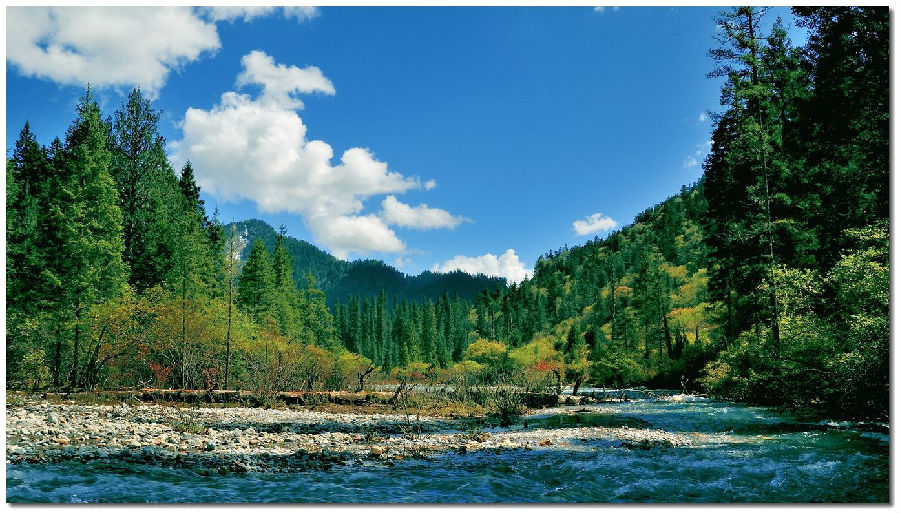(单词翻译:单击)
听力文本
This is Scientific American — 60-Second Science. I'm Steve Mirsky.
"Noise can prevent an animal from hearing other important sounds."
Rachel Buxton, a conservation biologist at Colorado State University. Buxton and colleagues wanted to see, or rather hear, whether sounds made by human activity—called anthropogenic sound, think airplanes, highway traffic, heavy machinery—were significant in protected areas around the country.
"Park Service engineers on our team used over a million hours of acoustic measurements taken from 492 sites around the contiguous United States. And they built a sound model...so to get at an idea of noise pollution, we used two thresholds: where anthropogenic noise raises sound levels three and 10 decibels above natural."
Which translates to a doubling and 10-times increase in sound levels. Buxton and her team determined that humans were responsible for doubling the sound in 63 percent of protected areas. And we raise the natural sound levels by 10 times in 21 percent of such landscapes.

"These levels are known to impact both the human experience in national parks and have a range of repercussions for wildlife...so animals use sounds for many essential life functions, such as predator avoidance, navigation, finding food, mate attraction and maintenance of social groups. So not being able to hear these sounds has serious consequences."
The study is in the journal Science, which also provided the audio of Buxton.
"The challenge here is managing noise sources that are coming from outside the protected area...however, our paper provides some really valuable information and options for managing noise and also enhancing opportunities to enjoy natural quiet."
Because it's not just the non-human residents of wilderness areas that need some peace and quiet.
Thanks for listening for Scientific American — 60-Second Science Science. I'm Steve Mirsky.
参考译文
这里是科学美国人——60秒科学。我是史蒂夫·米尔斯基。
“噪音会让动物听不到其它重要的声音。”
科罗拉多州立大学的保护生物学家蕾切尔·巴克斯顿说。巴克斯顿和同事们想看看,或者更确切地说是想听听,飞机、公路交通、重型机械等人类活动产生的人为噪音是否对全美各地的自然保护区都有重要影响。
“我们团队的公园管理局工程师使用了美国492个站点的100多万小时的声学测量数据。他们用这些数据建立了一个声音模型,为了了解噪音污染的概念,我们使用了两个阀值:人为噪音的声级分别高于自然噪音3分贝和10分贝。”
这相当于声级分别增加1倍和10倍。巴克斯顿和她的团队确定,在63%的保护区内,噪音翻倍的责任要归咎于人类。在21%的保护区中,人类将自然声音的声级增加了10倍。
“这些声级既影响了人类在国家公园的体验,也对野生动物造成了一系列影响,动物利用声音来实现基本生命功能,比如躲避捕食者、导航、寻找食物、吸引配偶以及维护社群关系。所以,听不到这些声音会产生严重的后果。”
这项研究发表在《科学》期刊上,文中提供了巴克斯顿的音频。
“我们面临的挑战是管理来自保护区外的噪音源,不过,我们的论文为管理噪音和增加享受宁静自然的机会提供了一些非常有价值的信息和方法。”
因为不只是自然保护区的非人类居民需要和平与宁静。
谢谢大家收听科学美国人——60秒科学。我是史蒂夫·米尔斯基。
译文为可可英语翻译,未经授权请勿转载!
重点讲解
重点讲解:
1. prevent sb. from doing sth. 阻止;制止;阻碍;
例句:Sound-insulating floors, partitions, or enclosures are used to confine the noise within a room or to prevent noise from entering a room.
现在人们采用隔声楼板、间壁或围护结构把噪音限制在房间内部或不让噪音传人房间。
2. be responsible for 负有责任的;应承担责任的;
例句:His critics maintain that he's responsible for many of Algeria's ills.
他的批评者们坚持认为他应该为阿尔及利亚所面临的许多难题负责任。
3. a range of (同类事物的)一系列,一连串;
例句:The two men discussed a range of issues.
那两个人讨论了一系列问题。
4. come from 来自;始于;
例句:Chocolate comes from the cacao tree.
巧克力出自可可树。


